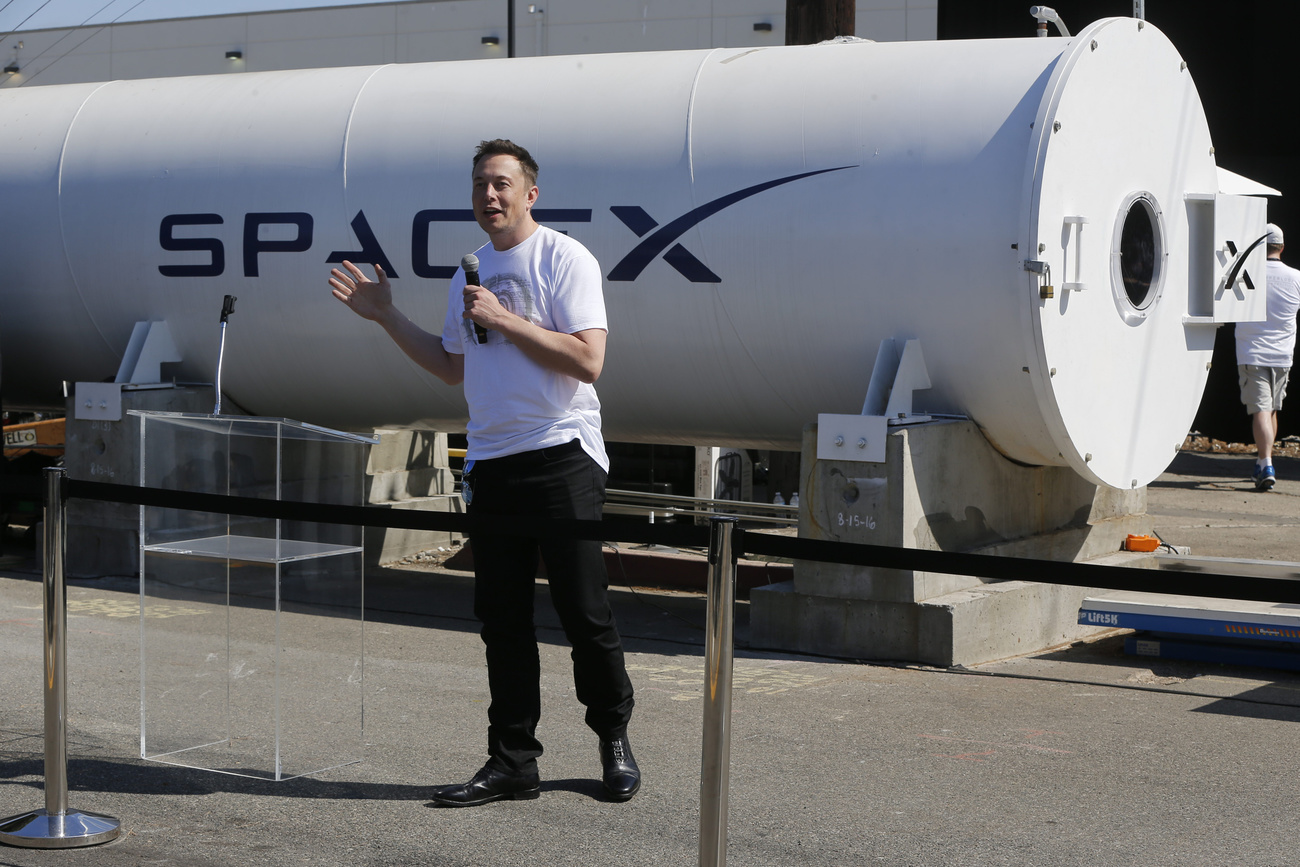
Appeal launched against Starlink satellite antennae project planned in Swiss village

A group of Swiss citizens has filed an appeal against plans to install 40 Starlink satellite antennae in the mountain village of Leuk in southern Switzerland. Opponents cite health concerns and the fact that the project comes from Elon Musk.
+Get the most important news from Switzerland in your inbox
Elon Musk’s US space company SpaceX, which owns Starlink, announced at the beginning of June its plans to build 40 antennae in Leuk. The facilities are to be erected on a site above the village, where several large satellite dishes are already installed.
The appeal, reported by Swiss public radio, RTS, comes from a group of Swiss citizens. It is led by a family doctor from Leuk, Hanna Schnyder-Etienne, who is worried about the impact of the antennae on people’s health.

More
Starlink satellite antennae plan divides Swiss village
“The building permit shows that 40 antennae are planned, which will emit much more radiation towards us,” she told RTS. “And the engineers who support our approach say that there will be radiation not only from the antennae, but also on the village of Leuk.”
Data sovereignty
Hanna Schnyder-Etienne is also worried about data sovereignty and the fact that the project was proposed by Elon Musk.
Adrien Pinho, a member of the Valais cantonal parliament, shares her concerns. “We’re talking about a project that would connect the entire planet, which gives enormous power to certain companies,” he told RTS. “There’s a huge amount of sensitive data that could be transmitted, so we prefer to keep control as a state.”
But this point of view is not shared by everyone. The president of Leuk, Alain Bregy, is in favour of the project. It would be a financial opportunity, he noted.
“Health concerns have always existed, even with today’s antennae,” said Bregy. “Older structures transmit up to 36,000 kilometres, newer ones only 550 kilometres. From my perspective as an engineer, they are less dangerous.”
Power outage support
Starlink could also prove useful in the event of a power outage, other supporters of the project believe. When snow cut off communications this spring in the Upper Valais region, even rescuers couldn’t rely on their Polycom network walkie-talkies, they point out.
“In Zermatt, there was a real communication problem. Polycom didn’t work,” says Isabelle Chappuis, a Centre Party politician. “And in this case, it’s indeed a solution for civilians. It’s ideal to have a satellite network we can rely on.”
Polycom’s 780 antennae run on electricity. As backup batteries drain quickly, cantons must practice deploying generators. However, these generators could not be delivered to the Valais site due to the weather.
However, this is an isolated case, the Swiss government assures. Therefore, there is no question of relying entirely on satellites. “Satellites do not penetrate buildings, cars, or public transport, unlike the terrestrial system,” explains Markus Hess of the Federal Office for Civil Protection. “So this is not the solution to all problems, but only a complementary solution.”
Translated from French by DeepL/sb
We select the most relevant news for an international audience and use automatic translation tools to translate them into English. A journalist then reviews the translation for clarity and accuracy before publication.
Providing you with automatically translated news gives us the time to write more in-depth articles. The news stories we select have been written and carefully fact-checked by an external editorial team from news agencies such as Bloomberg or Keystone.
If you have any questions about how we work, write to us at english@swissinfo.ch

In compliance with the JTI standards
More: SWI swissinfo.ch certified by the Journalism Trust Initiative




























You can find an overview of ongoing debates with our journalists here . Please join us!
If you want to start a conversation about a topic raised in this article or want to report factual errors, email us at english@swissinfo.ch.